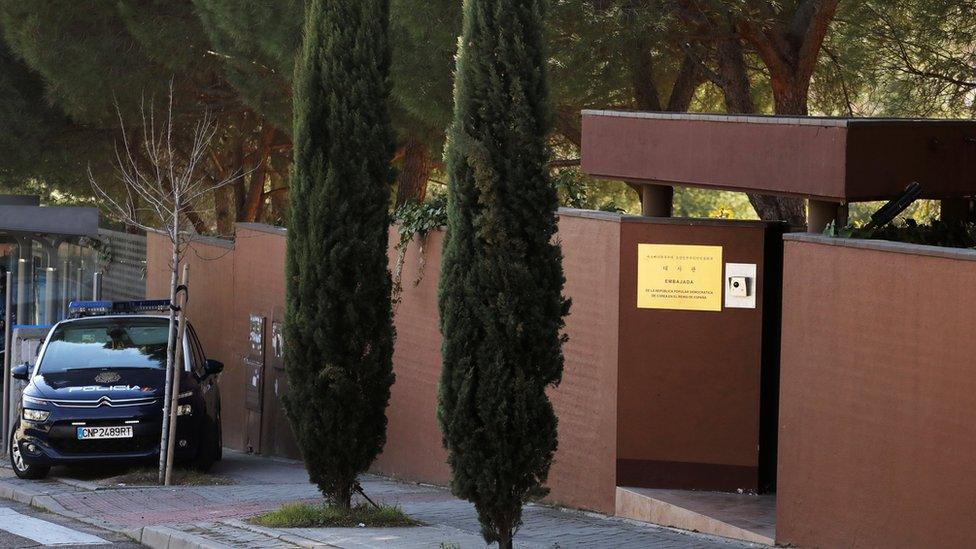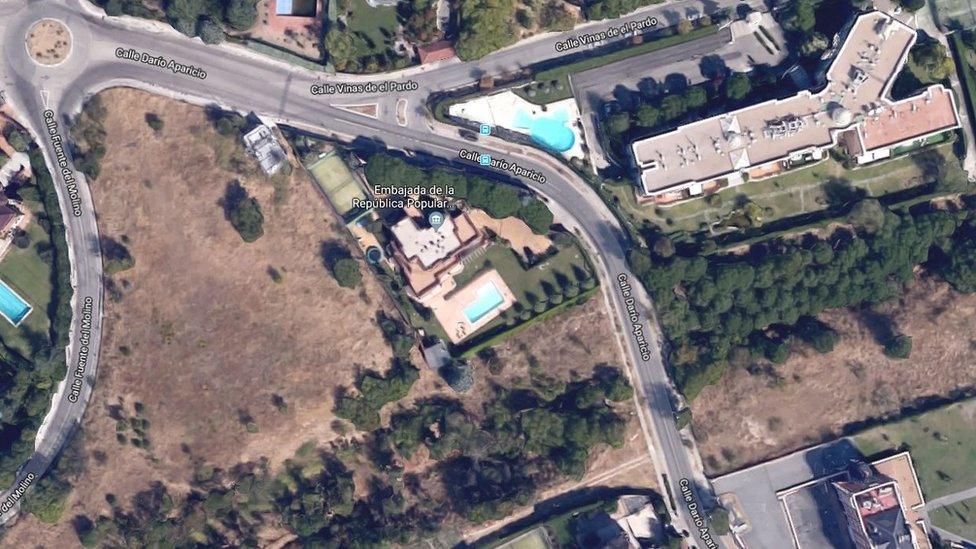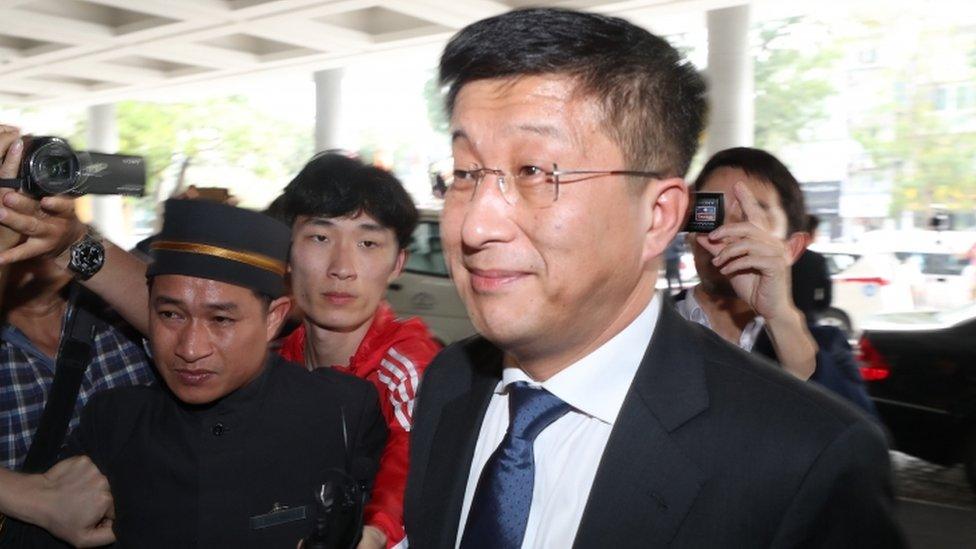What happened at North Korea's embassy in Spain?
- Published

Police were called after a woman reportedly escaped through a second-floor window and screamed for help
Spanish investigators are probing an alleged attack on the North Korean embassy in Madrid.
On 22 February, a group of 10 assailants reportedly broke into the building, tying up, beating and interrogating eight people inside.
The incident took place just days before a key summit between US President Donald Trump and North Korean leader Kim Jong-un.
And now there are reports US intelligence services were involved.
With the US and North Korea striving to improve relations after nearly 70 years of hostility, such allegations could be explosive.
The BBC contacted police in Madrid for comment, but has yet to receive a response.
So what exactly happened at the embassy?
What happened?
Local media reports that on the afternoon of 22 February, a group of 10 people broke into North Korea's embassy, north-west of the Spanish capital's centre.
According to El Confidencial (in Spanish), the assailants gagged and tied up staff members, and took a number of computers, external.
One woman managed to get free, escaping through a second floor window and screaming for help. Concerned neighbours quickly called the police.
But when officers arrived they were greeted by an Asian man at the door who reassured them that all was well and nothing had happened.
Minutes later, the man and the other attackers sped away from the embassy at full speed in two North Korean diplomatic vehicles.

The two-storey embassy has a swimming pool and lies to the north-west of central Madrid
Inside, the police reportedly found eight people tied up with bags over their heads. They had been bound for about four hours, and two needed medical help after the assault.
Both cars were found abandoned nearby shortly afterwards.
Who's behind it?
Authorities have dismissed the idea that common criminals are behind the alleged attack.
Sources close to the investigation reportedly told El País that the operation was planned perfectly, as if by a "military cell", external.
And the attackers seemed to know what they were looking for, grabbing mobile phones and computers.
Both El País and El Confidencial report that the Spanish authorities suspect US intelligence agencies and their allies could have been involved in the attack.
Victims of the alleged assault have reportedly told investigators the attackers spoke in Korean, and could have been from South Korea.
El País even reports that two of the group of 10 have been identified, and have links to the US Central Intelligence Agency (CIA).
The CIA declined to comment to the BBC.
Why would anyone attack the embassy?
Reports say the attackers could have been looking for information on North Korea's former ambassador to Madrid, Kim Hyok-chol.
The diplomat was expelled from Spain in September 2017 over North Korea's nuclear-testing programme.
But Mr Kim is now serving as a key envoy in North Korean talks with the US, and helped organise the recent summit in Vietnam.

Kim Hyok-chol helped organise the most recent summit between Donald Trump and Kim Jong-un, in Hanoi
He also travelled to Washington DC with Kim Jong-un's right-hand man, Kim Yong-chol, in January.
However, it is unclear precisely why the embassy attack took place, or who was involved.
What happens now?
Spanish investigators are staying tight-lipped, and the New York Times reports neither the employee who escaped nor the embassy has filed a formal police complaint, external.
If there is however a proven link with intelligence services, it could cause uproar both in North Korea and internationally.
Spain would not be pleased foreign agencies had worked on its soil without permission. And breaking into another country's embassy would be a huge breach of international protocol.
The nation's High Court, the Audiencia Nacional, will hear the investigation and could order the arrest of any identified assailants.
However, government sources reportedly say proving the involvement of US intelligence agencies could be difficult.
The only thing that's clear so far is that this story is just beginning.